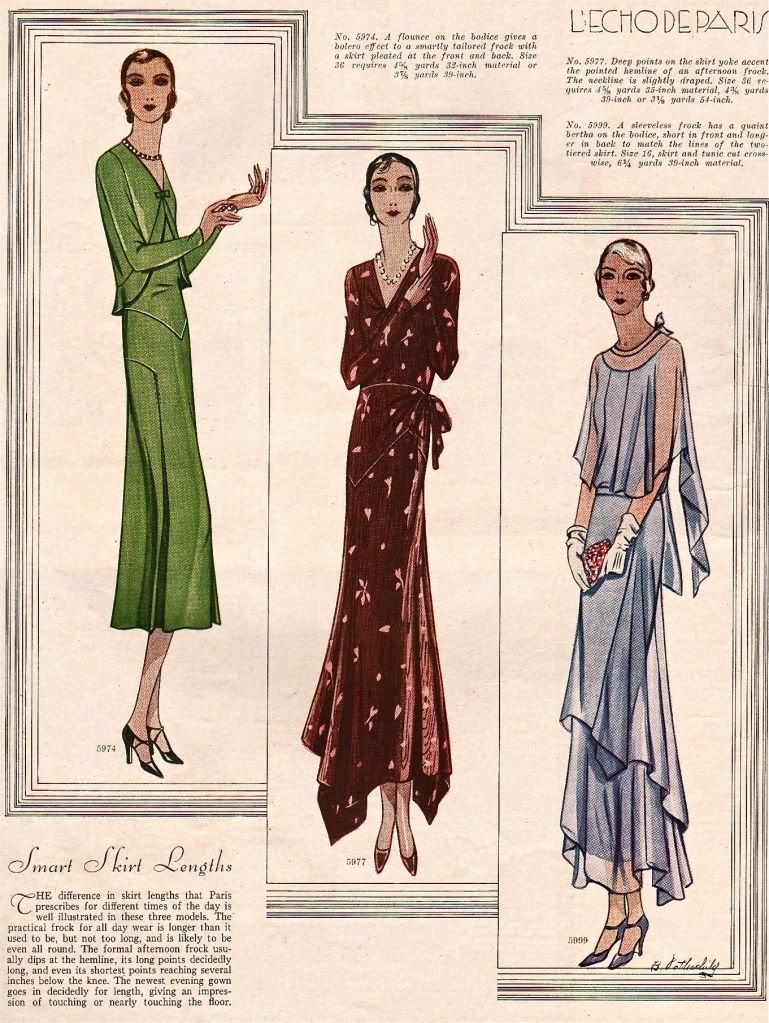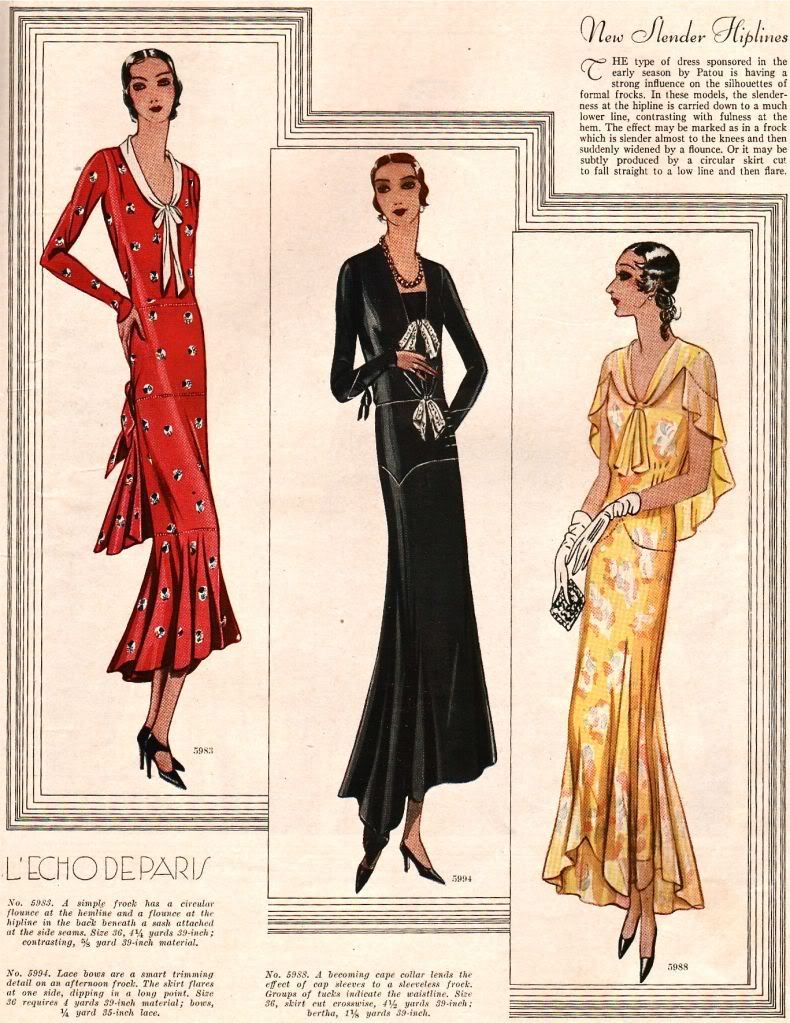These were patterns you bought to sew at home. How the 1930's sewing machines handled all this sheer draping fabrics cut on the bias reminds us just how good these seamstresses were.

"The difference in skirt lengths that Paris prescribes for different times of the day is well illustrated in these three models. The practical frock for all day wear is longer than it used to be, but not too long, and is likely to be even all round. The formal afternoon frock usually dips at the hemline, its long points decidedly long, and even its shortest points reaching several inches below the knee. The newest evening gown goes in decidedly for length, giving an impression of touching or nearly touching the floor."
"The type of dress sponsored in the early season by Patou is having a strong influence on the silhouettes of formal frocks. In these models, the slenderness at the hipline is carried down to a much lower line, contrasting with fulness at the hem. The effect may be marked as in a frock which is slender almost to the knees and then suddenly widened by a flounce. Or it may be subtly produced by a circular skirt cut to fall straight to a low line and then flare."
0 comments :
Post a Comment